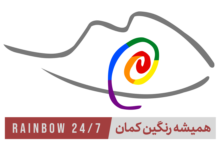The Yogyakarta Principles plus 10 (YP+10)

Additional Principles and State Obligations on the Application of International Human Rights Law in Relation to Sexual Orientation, Gender Identity, Gender Expression and Sex Characteristics to Complement the Yogyakarta Principles.
The YP plus 10 was adopted on 10 November, 2017 to supplement the Yogyakarta Principles. The YP plus 10 document emerged from the intersection of the developments in international human rights law with the emerging understanding of violations suffered by persons on grounds of sexual orientation and gender identity and the recognition of the distinct and intersectional grounds of gender expression and sex characteristics.
The Principles are presented here in English , in Arabic, in Spanish and in French.
The Yogyakarta Principles
In 2006, in response to well-documented patterns of abuse, a distinguished group of international human rights experts met in Yogyakarta, Indonesia to outline a set of international principles relating to sexual orientation and gender identity. The result was the Yogyakarta Principles: a universal guide to human rights which affirm binding international legal standards with which all States must comply. They promise a different future where all people born free and equal in dignity and rights can fulfil that precious birthright.
The Principles are presented here in all six United Nations languages.
English • Español • Français • русский • العربية • 中文
…
The Yogyakarta Principles can be used, cited and printed without any restriction.
If you are thinking about printing the entire Principles the only restriction is that they will not be modified in any way and won’t be put any logo on them.
If you want to cite the YP, you can do it this way:
The Yogyakarta Principles address a broad range of international human rights standards and their application to SOGI issues. On 10 Nov. 2017 a panel of experts published additional principles expanding on the original document reflecting developments in international human rights law and practice since the 2006 Principles, The Yogyakarta Principles plus 10. The new document also contains 111 ‘additional state obligations’, related to areas such as torture, asylum, privacy, health and the protection of human rights defenders. The full text of the Yogyakarta Principles and the Yogyakarta Principles plus 10 are available at: www.yogyakartaprinciples.org [and the date of consultancy]
About the Yogyakarta Principles
Q. What are the Yogyakarta Principles?
The Yogyakarta Principles are a set of principles on the application of international human rights law in relation to sexual orientation and gender identity. The Principles affirm binding international legal standards with which all States must comply. They promise a different future where all people born free and equal in dignity and rights can fulfil that precious birthright.
Q. Why are they needed?
Human rights violations targeted toward persons because of their actual or perceived sexual orientation or gender identity constitute an entrenched global pattern of serious concern. They include extra-judicial killings, torture and ill-treatment, sexual assault and rape, invasions of privacy, arbitrary detention, denial of employment and education opportunities, and serious discrimination in relation to the enjoyment of other human rights.
Key human rights mechanisms of the United Nations have affirmed States’ obligation to ensure effective protection of all persons from discrimination based on sexual orientation or gender identity. However, the international response has been fragmented and inconsistent, creating the need for a consistent understanding of the comprehensive regime of international human rights law and its application to issues of sexual orientation and gender identity. The Yogyakarta Principles do this.
Q. How did the Principles come about?
The Principles were developed and unanimously adopted by a distinguished group of human rights experts, from diverse regions and backgrounds, including judges, academics, a former UN High Commissioner for Human Rights, UN Special Procedures, members of treaty bodies, NGOs and others. The Rapporteur of the process, Professor Michael O’Flaherty, has made immense contributions to the drafting and revision of the Yogyakarta Principles.
A key event in the development of the Principles was an international seminar of many of these legal experts that took place in Yogyakarta, Indonesia at Gadjah Mada University from 6 to 9 November 2006. That seminar clarified the nature, scope and implementation of States’ human rights obligations in relation to sexual orientation and gender identity under existing human rights treaties and law.
Q. What do they cover?
The Yogyakarta Principles address the broad range of human rights standards and their application to issues of sexual orientation and gender identity.
These include extrajudicial executions, violence and torture, access to justice, privacy, non-discrimination, rights to freedom of expression and assembly, employment, health, education, immigration and refugee issues, public participation, and a variety of other rights.
Q. How can these rights be implemented?
The Principles affirm the primary obligation of States to implement human rights. Each Principle is accompanied by detailed recommendations to States. The Principles also emphasise, however, that all actors have responsibilities to promote and protect human rights. Additional recommendations are therefore addressed to the UN human rights system, national human rights institutions, the media, non-governmental organisations, and others.
